The new inquiry concluded Martin Bashir mocked up fake bank statements and showed them to Earl Spencer to gain access to Diana.

Martin Bashir used “deceitful behaviour” to secure his landmark Panorama interview with Princess Diana in 1995, an official inquiry has found.
The report by Lord Dyson concluded the journalist breached BBC rules by mocking up fake bank statements and showing them to Diana‘s brother, Earl Spencer, to gain access to the princess.
And the inquiry also said the corporation covered up Mr Bashir’s behaviour and it “fell short of high standards of integrity and transparency”.
The BBC and Mr Bashir have both apologised, and the corporation has written apologies to Diana’s sons Prince William and Prince Harry, as well as Prince Charles and Earl Spencer.
What did Diana’s brother allege?
Earl Spencer claimed that in the weeks before the programme, Mr Bashir showed him forged bank statements that related to alleged payments made to his sister’s former private secretary Patrick Jephson and another former royal household member by the security services.
The documents falsely suggested the individuals were being paid for keeping the princess under surveillance.
Mr Bashir also showed him mocked-up documents, relating to a former employee of the earl, that Mr Bashir also used as he tried to gain access to the princess.
What are the main findings of the 127-page report?
• Mr Bashir commissioned fake bank statements from graphic designer Matt Wiessler, purportedly showing payments by Penfolds Consultants and News International into the bank account of Alan Waller, a former employee of Earl Spencer
• Mr Bashir showed the documents to Earl Spencer on a date early in September 1995. The report said Mr Wiessler is an entirely reputable graphic designer who did freelance work for the BBC. Nobody has criticised him for accepting the commission
• A few days later, probably on 14 September, Mr Bashir also produced to Earl Spencer other bank statements which, he said, showed payments into the account of Mr Jephson and Richard Aylard (the Prince of Wales‘ former private secretary)
• The report said it is likely that these statements were created by Mr Bashir and contained information he had fabricated
• By showing Earl Spencer the fake Waller and Jephson/Aylard statements and informing him of their contents, Mr Bashir deceived and induced him to arrange a meeting with Princess Diana. By gaining access to Princess Diana in this way, Mr Bashir was able to persuade her to agree to give the interview
• The inquiry found this behaviour was in serious breach of the 1993 edition of the BBC’s producer guidelines on straight dealing
• The BBC “fell short of the high standards of integrity and transparency which are its hallmark” in the subsequent investigation
• A 1996 investigation conducted by Lord Hall, who was director of BBC news and current affairs when the Diana interview was screened, and Anne Sloman was woefully ineffective, the report found
• It said the 1996 investigation did not achieve its purpose of getting to the bottom of what Mr Bashir had done or why he had done it
• In particular, it did not address the specific question of whether, by showing the fake statements to Earl Spencer, Mr Bashir was able to secure an introduction to Princess Diana and thereby an interview. That was a crucial omission
• The new inquiry said Lord Hall and Mrs Sloman failed to interview Earl Spencer, which “was a big mistake”
• They did not scrutinise Mr Bashir’s account with the necessary degree of scepticism and caution: they knew he had lied three times when he said that he had not shown the fake statements to Earl Spencer (these were serious lies for which he gave no explanation)
• They knew that he had been unable to provide any credible explanation of why he had commissioned the fake statements (which was a serious breach of the BBC’s producers’ guidelines on straight dealing); and they knew that Mr Bashir’s account of what happened was largely uncorroborated
• And without knowing Earl Spencer’s version of the facts; without receiving from Mr Bashir a credible explanation of what he had done and why he had done it; and in the light of his serious and unexplained lies, Lord Hall could not reasonably have concluded, as he did, that Mr Bashir was an honest and honourable man
• The BBC without justification “fell short of the high standards of integrity and transparency which are its hallmark by covering up in its press logs such facts as it had been able to establish about how Mr Bashir secured the interview and failing to mention Mr Bashir’s activities or the BBC investigations of them on any news programme”
It comes as a letter which Diana wrote over a month after the programme aired has been published by the inquiry for the first time.
In the note, she defended her decision to be interviewed by Mr Bashir and she had “no regrets”.
The letter, dated 22 December 1995, said: “Martin Bashir did not show me any documents, nor give me any information that I was not previously aware of.
“I consented to the interview on Panorama without any undue pressure and have no regrets concerning the matter.”
The note was written after Mr Bashir was asked by BBC executives to provide evidence Diana had not been shown fake bank statements as he tried to gain access to her.
Lord Dyson’s report said: “Mr Bashir gave them an account of the faking of the documents. Crucially, he told them that he had not shown them to anyone.
“They accepted that he was telling them the truth, but asked him to provide independent evidence that Princess Diana had not been shown the documents.
“Within a few hours, Mr Bashir obtained a note dated 22 December 1995, signed by her which supported what he had said. I am satisfied that the Diana note is a genuine document.”
Earl Spencer has told a new Panorama programme: “I have seen the content of the letter. It does not exonerate the BBC as far as I’m concerned because Diana is dealing from a position from having been lied to. She didn’t know that the whole obtaining of the interview was based on a series of falsehoods that led to her being vulnerable to this.”
Martin Bashir’s reaction to the report
In response to Lord Dyson’s findings, Mr Bashir apologised, saying the faking of bank statements was “a stupid thing to do and was an action I deeply regret”.
But he added he felt it had “no bearing whatsoever on the personal choice by Princess Diana to take part in the interview”.
Earl Spencer’s reaction
He tweeted: “I’d like to thank the TV journalist Andy Webb for his tireless professionalism in bringing the Bashir-Panorama-BBC scandal to light. If he hadn’t have pursued this story for well over a decade, and shared his findings with me last October, today’s findings wouldn’t have surfaced.”
The earl has told Panorama: “Well, the irony is that I met Martin Bashir on 31 August 1995 because exactly two years later she died and I do draw a line between the two events.
It’s quite clear from the introduction that I sat in on on the 19 September 1995… that everyone was going to be made untrustworthy, and I think that Diana did lose trust in really key people.
“This is a young girl in her mid 30s who has lived this extraordinarily turbulent, difficult time in the public eye. She didn’t know who to trust.… in the end, when she died two years later, she was without any form of real protection.”
Lord Hall’s reaction
Former director-general Lord Hall has apologised that the 1996 inquiry “fell well short of what was required”.
He said: “I have read Lord Dyson’s report, and I accept that our investigation 25 years ago into how Panorama secured the interview with Princess Diana fell well short of what was required.
“In hindsight, there were further steps we could and should have taken following complaints about Martin Bashir’s conduct.”
He added: “I was wrong to give Martin Bashir the benefit of the doubt, basing that judgment as I did on what appeared to be deep remorse on his part.”
The BBC’s reaction
The corporation’s director-general, Tim Davie, says the BBC offers a “full and unconditional apology”.
He said: “While today’s BBC has significantly better processes and procedures, those that existed at the time should have prevented the interview being secured in this way. The BBC should have made greater effort to get to the bottom of what happened at the time and been more transparent about what it knew.
“While the BBC cannot turn back the clock after a quarter of a century, we can make a full and unconditional apology. The BBC offers that today.”
Matt Wiessler’s reaction
Mr Wiessler’s solicitor, Louis Charalambous of Simons Muirhead Burton, said: “The report makes absolutely clear that Mr Wiessler acted responsibly and appropriately throughout. He is an honourable and thoroughly professional individual who won awards during his time at the BBC.
“Lord Dyson’s findings are a welcome relief to him. He is still waiting for a personal apology from the director general.”
Patrick Jephson’s reaction
He said: “After so many years it is a relief to know more of the truth behind events which had so many unhappy and even tragic consequences.
“I am grateful to Lord Spencer, Lord Dyson and the tenacious journalists who brought the story to light. I also acknowledge the BBC’s full apology which I received from the director general this afternoon.”
He told a new Panorama programme that after the 1995 interview, she was “cast adrift” from the “royal support structure that had guided and safeguarded her for so many years”.
He suggested this “inevitably made her vulnerable to people who were unable properly to look after her”.
Lord Birt’s reaction
Lord Birt, director-general of the BBC at the time of the interview, said: “We now know that the BBC harboured a rogue reporter on Panorama who fabricated an elaborate, detailed but wholly false account of his dealings with Earl Spencer and Princess Diana.
“This is a shocking blot on the BBC’s enduring commitment to honest journalism; and it is a matter of the greatest regret that it has taken 25 years for the full truth to emerge.
“As the director-general at the time, I offer my deep apologies to Earl Spencer and to all others affected.”
In March this year, the Metropolitan Police said Mr Bashir will not face a criminal investigation over documents related to the landmark Diana interview.
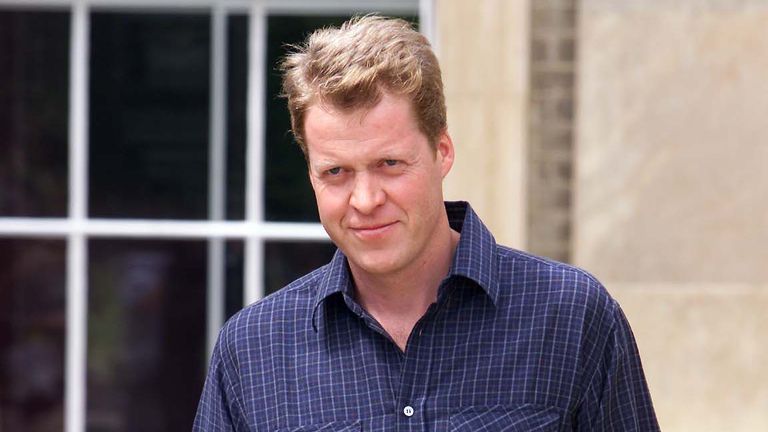
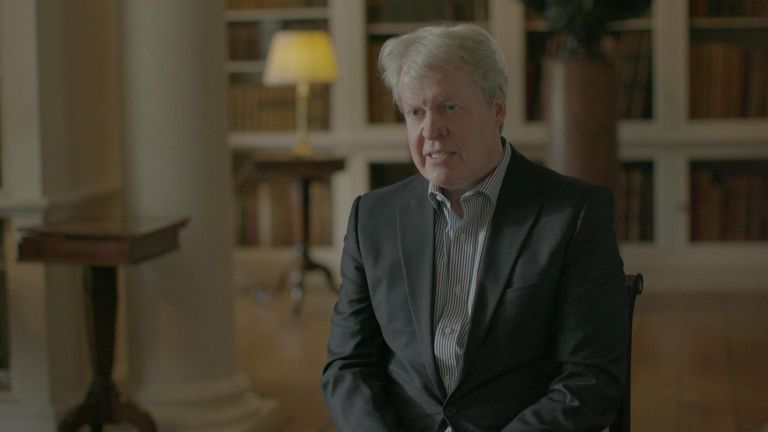
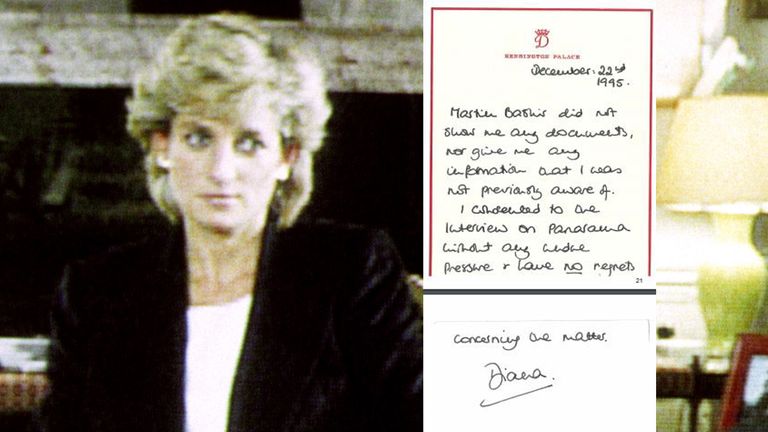
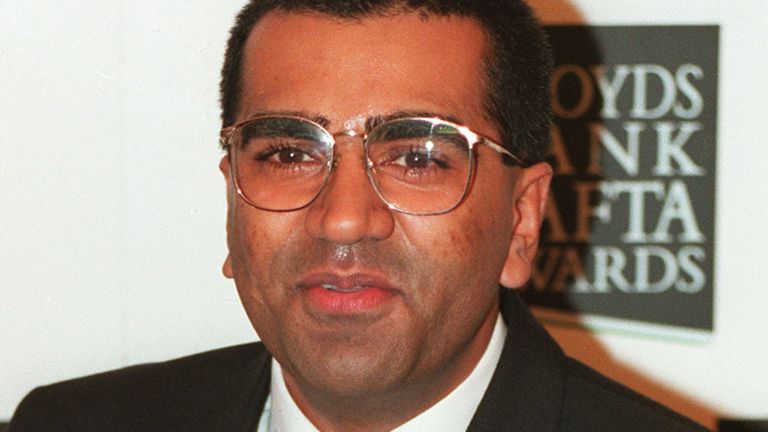
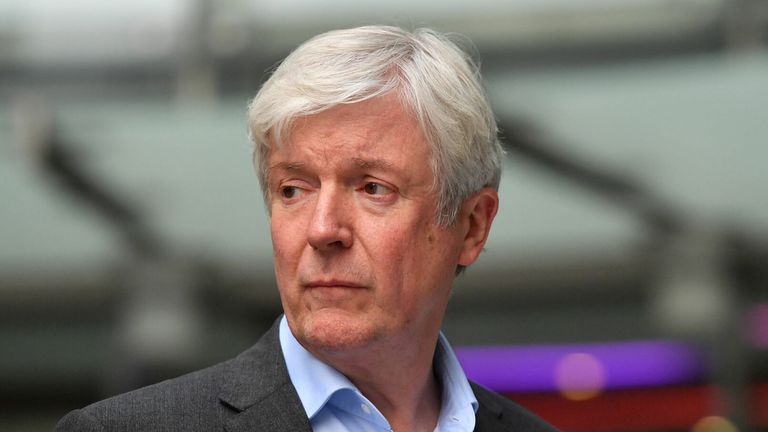
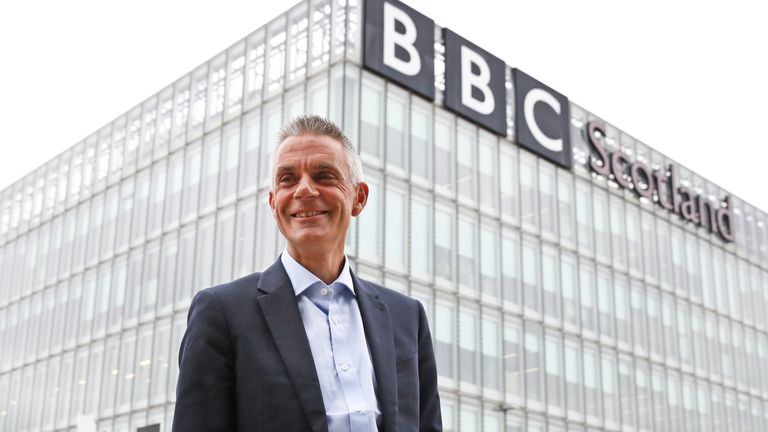


No comments:
Post a Comment
Note: only a member of this blog may post a comment.